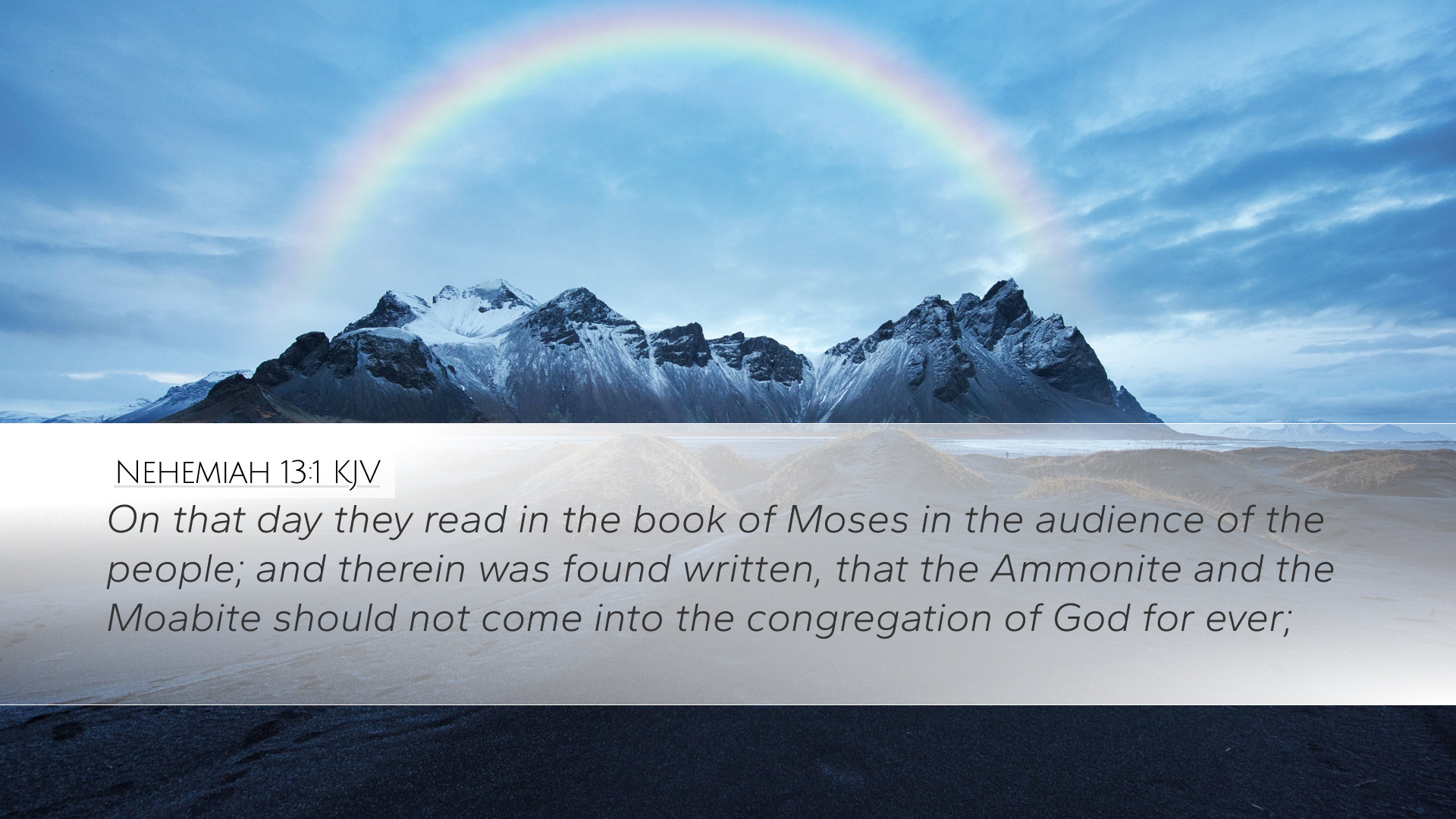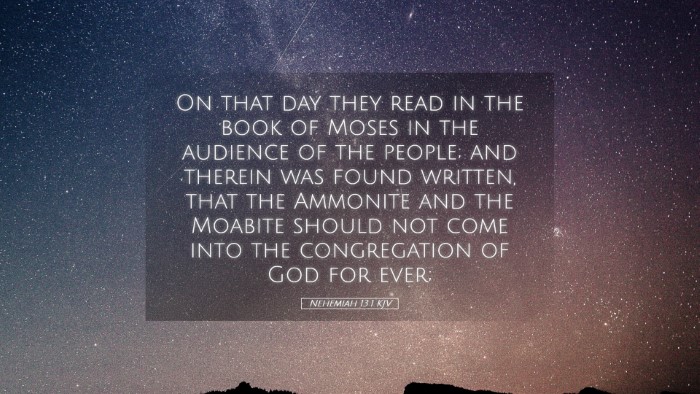Commentary on Nehemiah 13:1
The verse Nehemiah 13:1 states:
"On that day they read in the book of Moses in the hearing of the people; and in it was found written that no Ammonite or Moabite should ever enter the assembly of God."
This verse is pivotal in understanding the spiritual and cultural boundaries that Nehemiah sought to enforce among the returned exiles. The insights derived from various public domain commentaries provide layers of understanding relevant to contemporary readers, scholars, and clergy.
Contextual Background
Matthew Henry emphasizes the importance of context in interpreting Scripture. The reading of the Law occurred after a significant revival and reformation initiated under Nehemiah’s leadership. The mention of the "book of Moses" indicates that the Law was not only a historical record but a living guide for the community.
Albert Barnes highlights that the reading took place publicly, affirming the communal aspect of worship. The Law underscores the community’s identity and standards. The exclusion of Ammonites and Moabites originates from a historical context where these nations opposed Israel (Deuteronomy 23:3-6). By enforcing these laws, Nehemiah is seen as protecting the purity and integrity of the Jewish identity.
The Legislative Nature of the Record
Adam Clarke delves into the legislative intent of the commands. The prohibition against Ammonites and Moabites stems not merely from ethnic distinctions but reflects God’s covenant with Israel. This illustrates a divine mandate to maintain holiness within the community.
The rationale for this exclusion can also be viewed through a theological lens; the interference of pagan influences historically led Israel into sin, as seen in the examples of Solomon and other leaders. Thus, this verse serves as a precautionary measure against idolatry and unfaithfulness to God.
The Role of Scripture in Community Life
Reading Scripture publicly, as noted by both Henry and Barnes, reinforces the idea that worship and community life should be built upon God’s Word. It is not enough to possess the Scriptures privately; they must be integrated into the fabric of community identity.
- Affirmation of Identity: The assembly’s identity is reinforced through adherence to God’s commands.
- Public Accountability: By reading the Law aloud, leaders and followers alike hold themselves accountable to God’s standards.
- Encouragement of Unity: The common reading fosters unity among the people as they gather under the authority of the Law.
Pastoral and Theological Implications
For pastors and theologians, Nehemiah 13:1 serves as a powerful reminder of the need for discernment in community leadership. Matthew Henry insists that church leaders must navigate the balance between upholding Scripture and extending grace to all individuals. It raises critical discussions about inclusion, boundaries, and holiness in community life.
Albert Barnes cautions against legalism that might arise from a rigid interpretation of this passage. While it is crucial to adhere to biblical standards, it is equally important to extend the invitation of grace and salvation to all—including those outside the historical context of the Israelites.
Conclusion
Adam Clarke concludes by urging readers to consider how these ancient directives translate into modern application. While the specifics of the prohibitions may not apply directly, the underlying principle of keeping the assembly pure and focused on holiness is timeless.
Nehemiah 13:1 sends a clear message: engaging with the Word of God shapes community identity and practice. As contemporary scholars and ministers reflect on this verse, they must ask how Scripture informs their ministry and whether they uphold biblical truth while loving their neighbor.


